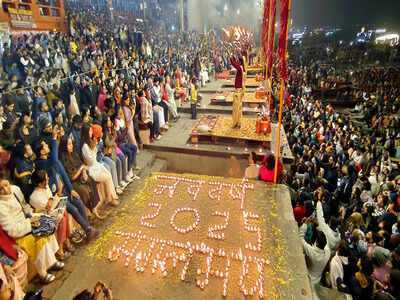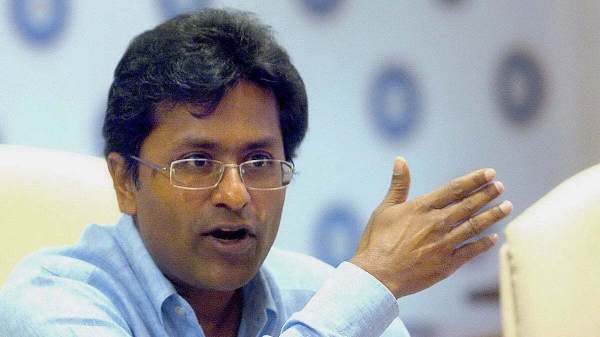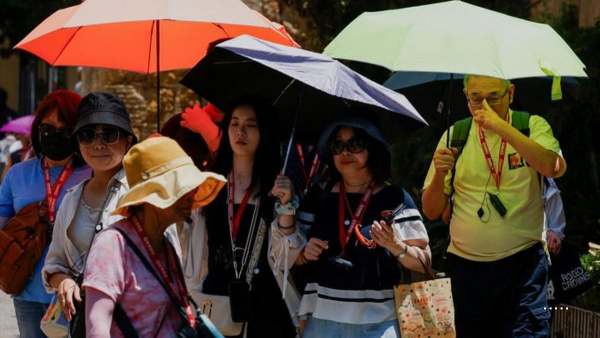
There are cities you visit, and then there are cities that visit you—haunt you, hold you, heal you. Kashi, also known as Varanasi, is not just a point on the map; it's a point in time, suspended between life and death, between chaos and calm, between the physical and the metaphysical.
In a world constantly chasing youth and life, Kashi stares unblinkingly into the face of death—and smiles. For centuries, saints, seekers, emperors, and even ordinary people have journeyed to this city with a singular goal: to die here.
But why? What makes Kashi the holiest, the strangest, and the most spiritually intense place on Earth?
Kashi: Not Just a City, but a Cosmic CenterLong before Google Maps or even kingdoms were born, Kashi was already here.
According to Hindu belief, Lord Shiva himself established Kashi. It is said that the city is built upon his trident—his trishul—and unlike other cities that are rooted on earth, Kashi hangs suspended between heaven and earth. This alone sets the tone for everything that follows.
Known as the “City of Light” (Kāśi comes from the Sanskrit root kas, meaning to shine), it is said to be older than history. In the words of Mark Twain, “Benaras is older than tradition, older even than legend and looks twice as old as all of them put together.”
Why People Come to Die in Kashi
 Let’s address the elephant in the cremation ground—why is Kashi associated so deeply with death?
Let’s address the elephant in the cremation ground—why is Kashi associated so deeply with death?
For Hindus, dying in Kashi is not tragic. It's transcendental. It is believed that anyone who dies here is granted moksha—freedom from the endless cycle of birth and death. No rebirth, no karma debt, no next life. Just liberation.
This belief has drawn people from across India, especially the elderly. Many spend their final days in “Mukti Bhavans” (salvation hostels), where they await death not with fear, but with quiet anticipation. One such place is Kashi Labh Mukti Bhawan, where guests are allowed a 15-day stay. If death doesn’t come within that time, they must vacate.
This isn’t morbid. This is deeply spiritual. It reflects an acceptance of impermanence that modern society often lacks.
The Ghats: Where Ritual and Reality CollideKashi is a city built along the Ganga, India’s most sacred river. It has nearly 90 ghats—stepped riverbanks where life and death play out in full public view.
Two ghats in particular—Manikarnika and Harishchandra—never sleep. Day and night, 24/7, cremations take place here. Smoke rises endlessly. Ash settles quietly. For outsiders, it's overwhelming. For locals, it's just another day.
At Manikarnika Ghat, death is not hidden or sanitized. It’s raw, ritualized, and revered. Bodies arrive on bamboo stretchers, wrapped in orange or white shrouds. Priests chant, flames rise, and Ganga carries the remains downstream. And through all this, there’s no wailing, no drama. Just stillness.
A local priest once said, “Yahan shav le jaate hain, par aatma ko moksha milta hai.” (Here, we carry corpses, but the soul attains liberation.)
The Presence of Shiva: Why Kashi Is Spiritually Magnetic
 What makes Kashi different from any other holy city?
What makes Kashi different from any other holy city?
It’s the constant presence—both symbolic and spiritual—of Lord Shiva.
Hindus believe that Shiva whispers the Taraka Mantra in the ear of the dying in Kashi, guiding their soul to liberation. No matter how sinful a life one may have led, a death in Kashi, and the cremation on the ghats, is believed to wash away all karma.
The city is dotted with thousands of temples, the most revered being the Kashi Vishwanath Temple, dedicated to Shiva. For many, one darshan (viewing) of the Vishwanath lingam is enough to purify the soul.
The energy inside this temple is electric. Devotees chant, bells ring, and the air vibrates with ancient power. Here, you don't pray with words; your very breath becomes a prayer.
Spiritual Economy: The Invisible Machine That Powers KashiBehind the rituals and religious fervor lies an economy deeply tied to spirituality.
There are over 3,000 religious institutions, hundreds of ashrams, and dozens of Sanskrit schools that attract spiritual seekers. Pandas (priests) perform daily rituals for the living and the dead. Boatmen row pilgrims across the river at sunrise, where the Ganga reflects not just the sky but the divine.
Even the death economy is structured. Cremation logs are weighed and priced. Priests charge fees for last rites. And yet, this doesn’t take away from the sanctity of the process. It only shows how deeply woven spirituality is into the economic fabric of Kashi.
Ganga Aarti: Where Fire Meets Faith

Prayagraj, Jan 22 (ANI): Priests perform 'Ganga aarti' during the Maha Kumbh Mela 2025, in Prayagraj on Tuesday. (ANI Photo)
Each evening at Dashashwamedh Ghat, as the sun sinks behind the Ganga, the Ganga Aarti begins. Thousands gather—tourists, pilgrims, locals. Priests in saffron robes perform an elaborate ritual with fire, incense, and conch shells.As lamps swirl in perfect choreography, and chants rise in rhythmic waves, time itself seems to pause.
It is hard not to feel something stir within—call it awe, call it divinity, call it homecoming.
A Shelter for Seekers: The Living, Too, Find Themselves in KashiWhile many come to die, just as many come to live—to find answers, purpose, or simply stillness.
Sadhus in saffron robes sit by the river, meditating for hours. Foreigners arrive with yoga mats and notebooks, staying for weeks or months in search of spiritual awakening. Students learn Sanskrit. Artists paint the ghats. Poets write verses inspired by the light, the river, and the rituals.
There’s something about Kashi that encourages introspection. You begin to look inward. You begin to ask the right questions.
Kashi Is a MirrorUltimately, Kashi doesn’t give you answers. It reflects who you are.
If you come with fear, it will overwhelm you. If you come with openness, it may just change your life. Because this city does not operate in the binary of right or wrong, pure or impure, religious or secular. It’s all mixed here—sacred and profane, ancient and new, death and birth.
And perhaps, that’s the real message of Kashi. That life isn’t about avoiding death, but about understanding it. And in that understanding, finding peace.
Where Time Ends, the Soul BeginsIn a world obsessed with beginnings—birthdays, anniversaries, new ventures—Kashi reminds us of the end. And through that, a beginning of a different kind.
It’s not a place you simply visit. It’s a place that visits you, especially when you’re ready to confront life’s deepest truths.
Here, at the edge of the Ganga, in the shadow of the cremation flames, something incredible happens: fear dissolves, silence speaks, and the soul, finally, breathes free.
That’s why Kashi isn’t just India’s spiritual capital.
It is the world’s final frontier between what is and what will never be again.
-
Shefali Jariwala Dies At 42: What Makes Women Prone To Heart-Related Illness?

-
'Gangrape' Of Kolkata Law Student Was Pre-Planned; Accused Trio Targeted Victim For Quite Some Time: Police
-
Club World Cup 2025: Lionel Messi's Name Spotted On PSG Star Desire Doue's Shoe During Match vs Inter Miami

-
SC Allows Lalit Modi To Seek Civil Remedy Against ₹10.65 Crore ED Fine In FEMA Case Linked To IPL's 2009 Season

-
Europe On High Alert As First Major Summer Heatwave Pushes Temperatures Above 42°C Across Continent
